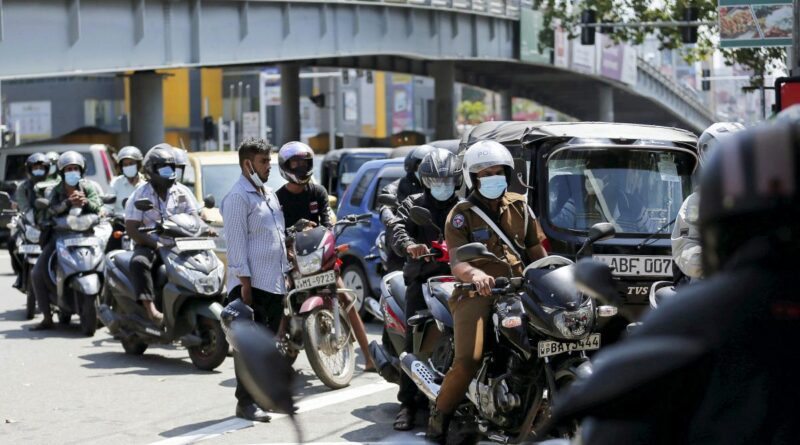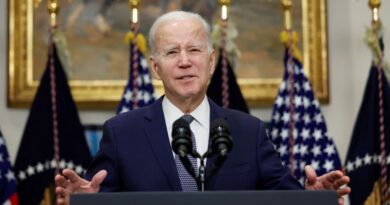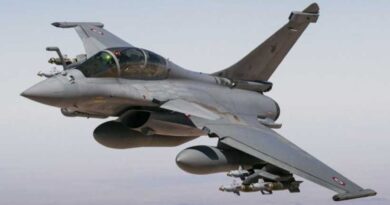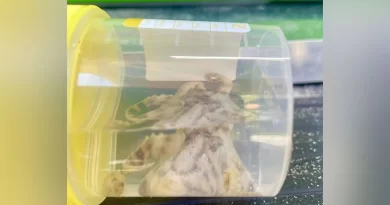Should Prez Ranil Persuade Lanka to Bear More Pain? 5 Months on, Locals Tell News18 About their Intensified ‘Fuel, Food Fight’
Our economy has completely collapsed, “said Ranil Wickremesinghe-President Sri Lanka who was newly elected and former prime minister six times-border in all parliament on June 22, even when hundreds of protesters in Colombo put out the streets of chanting” Go Geta Go Go Goti! “And demanding a strong resignation of Gotabaya Rajapaksa.
The decline in the economic fate and political riots of Sri Lanka reached its peak in April this year, when public anger over inflation and important shortcomings that overthrow the Rajapaksas government. Protest, which began in March, caused Gotabaya to finally escape to the Maldives, leaving a country full of debt in the hands of Wickremesinghe-who began discussions with International Monetary Funds (IMF) with the provisions of the Economic Bailout.
Wickremesinghe was appointed as President of Sri Lanka on July 20 in the midst of economic chaos. The country’s foreign debt amounted to $ 51 billion. To withstand fuel demand, the government closed the school, ordered workers to stay at home, and introduce new allotments.
Meanwhile, the middle class was forced to be tenacious in dealing with the lack of the government as the most basic thing-from milk powder to be difficult to obtain. Two Sri Lanka spoke to News18 about managing their lives in a destroyed economy.
Wait three days for half the tank fuel ‘
Over the past few months, the Sri Lankan people have continued to misery in long fuel queues and cook because the government cannot find dollars to fund imports.
Gowri, who lives in a village about 20 to 25 kilometers from the Capital City of Colombo, said her husband went to Ceylon Petroleum Corporation Pump (CPC) to fill their four wheels on June 24, and had to stay in the warehouse for the next two nights – along the end week. On June 27 morning, he finally issued a token. The token number is 51.
After the fuel load arrives on the bed, those who are given tokens are called priorities before continuing normal delivery. Gowri’s husband finally got half the tank fuel on the morning of June 28.
Electricity is not a big problem in mid -June, because the duration of the scheduled power cut is reduced to three hours a day from eight to nine hours in April and May. However, cooking gas and vegetables are not easily available.
Gowri took wise food with pressure pressure for his seven -year -old household. “Not all vegetables are available on the market. There will be carrots and brinter, and because this is a village, things like spinach will exist, “he said. One kilogram of rice costs almost 300 RS and is limited to 5 kilograms per person in the store.
In the midst of lack of rice and marked prices, the Sri Lanka government issued a notification of sheets on June 10 stating that the maximum local rice retail price must be determined at RS 210 for one kilogram of white and red rice.
The cost of eggs and fish rose by almost 300 percent, from RS 15 in the beginning of the year to RS 45 in June. Gowri said fish like Saala Meen (sardine) cost almost 300 rs 300 per kilogram and one egg sold for Rs 50, making staples inaccessible by ordinary people.
Adapt, improvise, overcome
In Colombo, the Yarlvanan Kannadasan electric bicycle that he has bought to carry out the task is useful when the price of fuel starts to move. Yarlvanan said he filled a two -wheeled tank when fuel was sold around RS 470 per liter in the first week of June, added that fuel was not available at the BPK managed by the government but Lanka IOC, a subsidiary of Indian Oil Corporation.
India has actively helped Sri Lanka to rise again by giving one more shipment of 40,000 tons of diesel on May 31 after extending an additional $ 500 million credit paths in April.
With work work-from-house and school children closed, the Yarlvanan family does not need to go out every day except for important things, spending a long time to wait for fuel. However, the 40 -year -old software engineer was armed to walk with difficulty through a crisis, whatever happened.
To overcome the lack of cooking gas, which costs almost 6,000 per cylinder gas in early July, Yarlvanan households turn to induction stoves. If the frequency power cut will be increased again, “We have a firewood stove, also ready,” he said.
The large deficiency of fuel and increased prices has a ripple effect on all commodities, such as bread, which costs up to RS 250, besides rice and milk. Although fresh milk is not too common in Sri Lanka compared to more common milk powder, Yarlvanan said it became increasingly inaccessible in recent months.
The UN World Food Program, which is estimated to be around 61 percent of households regularly uses coping strategies to reduce costs, such as reducing the amount they eat and consume more unlutied food, while 3 million receive emergency humanitarian assistance.
Drugs and other vital supplies become difficult to obtain. “Don’t get sick, don’t hurt, don’t do anything that will make you go to the hospital for unnecessary treatments,” Associated Press quoted Samarah Dharmaratne, President of the Sri Lanka Medical Association, like saying.
While the paid class has adapted to manage their lives in the midst of lack of fuel and terrible food, it is the most affected daily wage workers and car drivers – sentiments owned by Gowri and Yarlvanan.
President Wickremesinghe – In his first speech since he was chosen by parliament on July 20 – said that even though he as prime minister had aimed at reaching an agreement in early August, it has now been pushed again a month due to riots. The delay of the IMF Accord is likely to spread the lack of critical import items for at least a few months.




